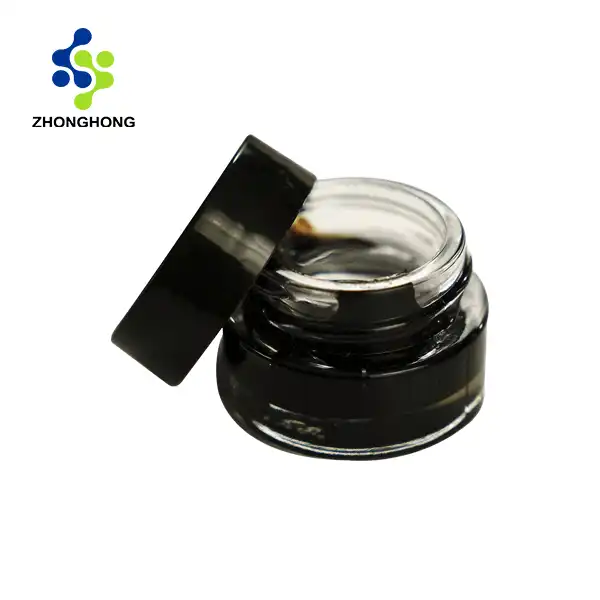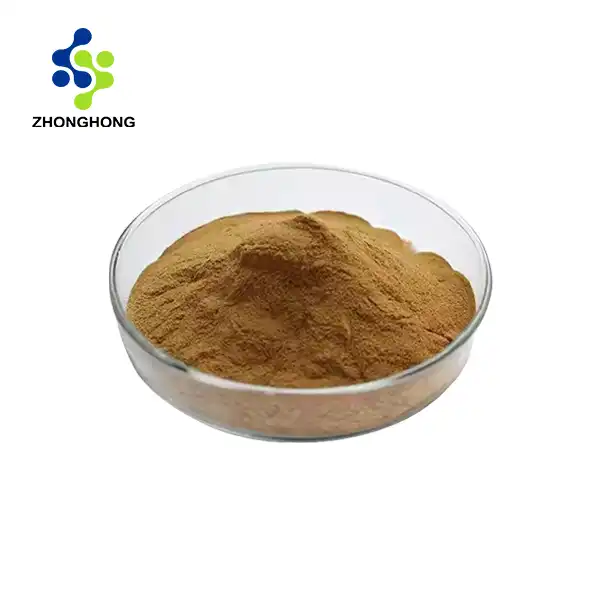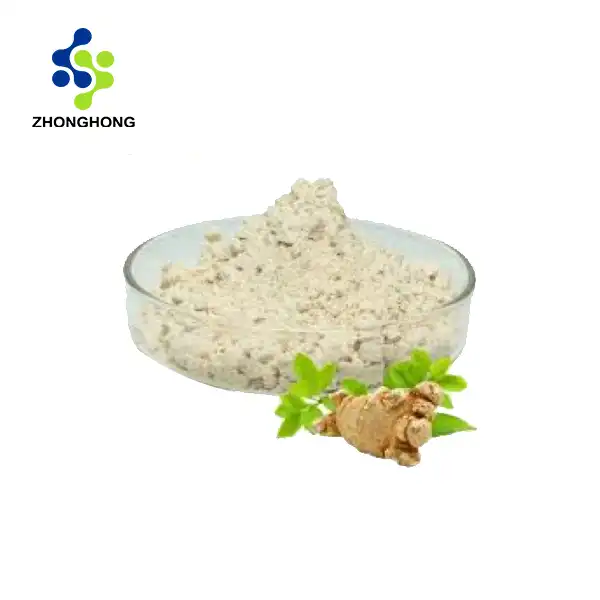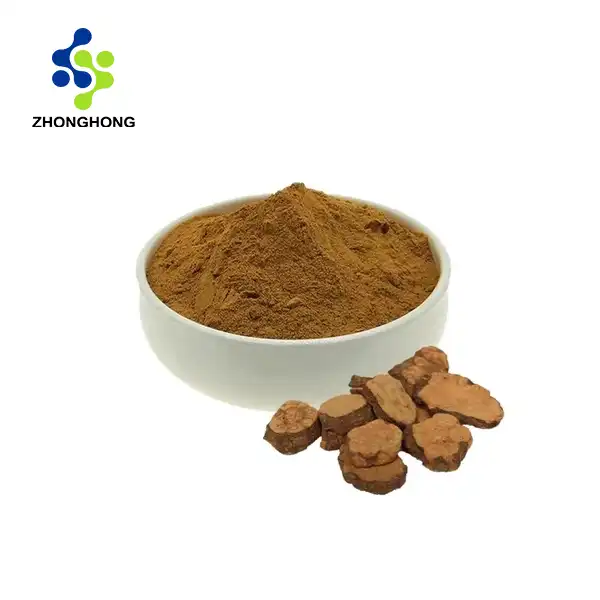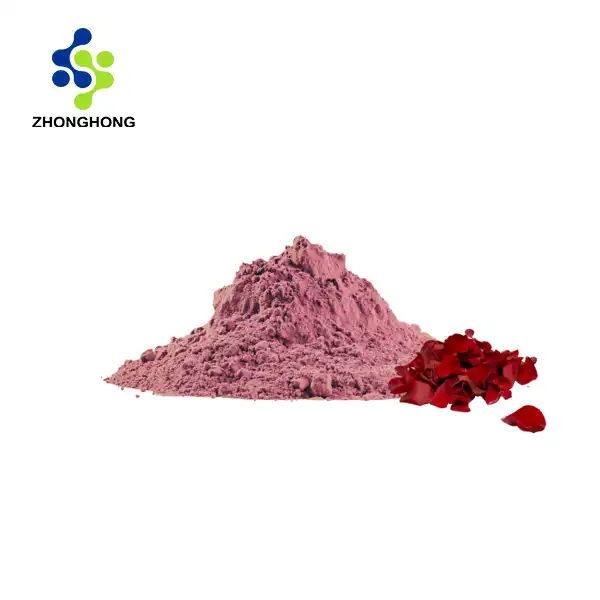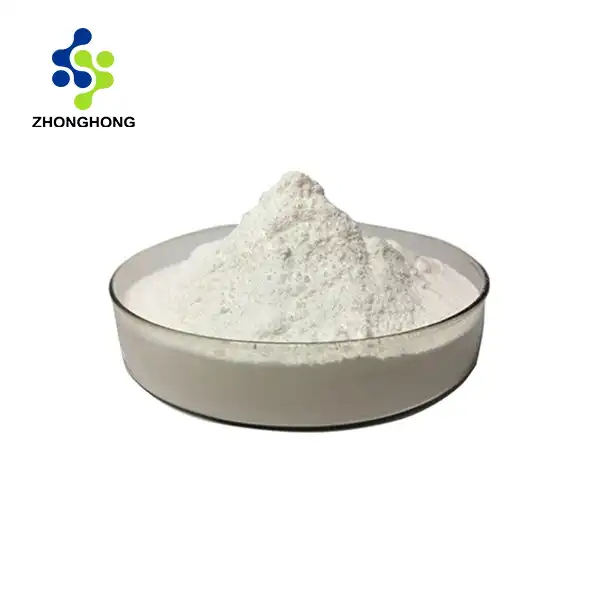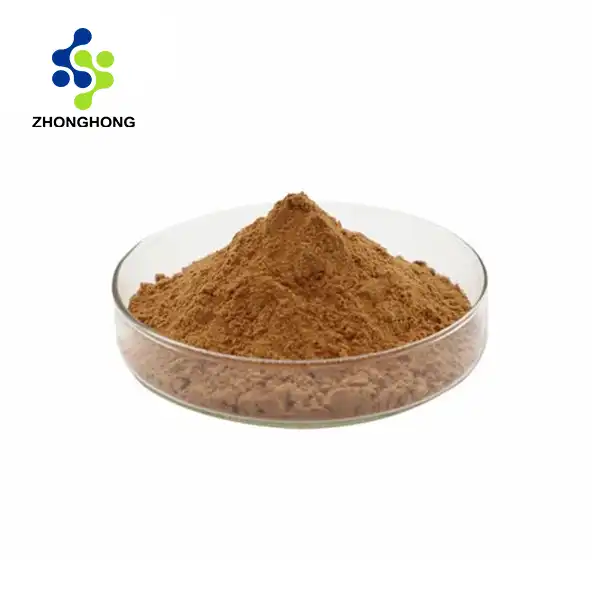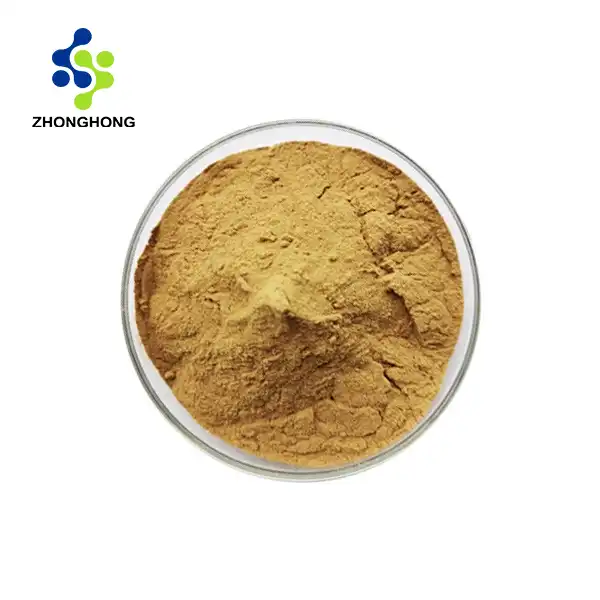Boost Immunity with Ergothioneine
2024-12-07 23:08:31
In today's health-conscious world, boosting immunity has become a top priority for many. Enter ergothioneine, a powerful antioxidant gaining attention for its potential to enhance our body's defense mechanisms. This naturally occurring compound, found primarily in mushrooms and some animal tissues, has piqued the interest of researchers and health enthusiasts alike. In this comprehensive guide, we'll explore how ergothioneine works to strengthen your immune system, the pros and cons of daily supplementation, and its role in fighting inflammation. Join us as we delve into the fascinating world of this promising immune-boosting molecule and discover how it might revolutionize our approach to health and wellness.
How Ergothioneine Strengthens Your Immune System?
Antioxidant Properties of Ergothioneine
Ergothioneine's remarkable antioxidant properties form the cornerstone of its immune-boosting potential. This unique molecule has the ability to neutralize harmful free radicals, which are unstable molecules that can damage cells and weaken the immune system. By scavenging these reactive oxygen species, ergothioneine helps maintain cellular health and integrity, providing a solid foundation for a robust immune response. Research has shown that ergothioneine's antioxidant capacity surpasses that of many other well-known antioxidants, including glutathione and vitamin C. Its molecular structure allows it to penetrate cellular membranes easily, offering protection from oxidative stress at the intracellular level. This intrinsic ability to safeguard cells from damage is crucial for preserving the functionality of immune cells, enabling them to perform their protective duties more effectively.
Enhancement of Immune Cell Function
Beyond its antioxidant prowess, ergothioneine plays a direct role in enhancing the function of various immune cells. Studies have demonstrated that this compound can modulate the activity of T-cells, B-cells, and natural killer cells – key players in our body's defense against pathogens and abnormal cells. Ergothioneine has been observed to stimulate the production of cytokines, which are signaling molecules that help coordinate immune responses. By promoting the release of these crucial messengers, ergothioneine facilitates better communication between different components of the immune system, leading to a more efficient and targeted defense against potential threats.
Mitochondrial Support and Energy Production
A lesser-known but equally important aspect of ergothioneine's immune-boosting capabilities lies in its support of mitochondrial function. Mitochondria, often referred to as the powerhouses of cells, play a critical role in energy production. Immune cells, particularly when activated, require substantial amounts of energy to carry out their protective functions effectively. Ergothioneine has been shown to accumulate in mitochondria, where it helps maintain optimal energy production and protects these vital organelles from oxidative damage. By ensuring a steady supply of energy and preserving mitochondrial integrity, ergothioneine indirectly supports the immune system's ability to mount a robust and sustained response to pathogens and other threats.
Daily Supplements with Ergothioneine: Pros and Cons
Benefits of Regular Ergothioneine Supplementation
The potential benefits of incorporating ergothioneine supplements into your daily routine are numerous and compelling. First and foremost, regular supplementation can help maintain consistently high levels of this powerful antioxidant in your body, providing continuous protection against oxidative stress and supporting overall immune function. Research suggests that ergothioneine supplementation may offer neuroprotective effects, potentially reducing the risk of cognitive decline and neurodegenerative diseases. Additionally, some studies have indicated that ergothioneine could play a role in cardiovascular health by protecting endothelial cells and reducing inflammation in blood vessels. For individuals with diets low in mushrooms or other ergothioneine-rich foods, daily supplements can help bridge nutritional gaps and ensure adequate intake of this beneficial compound. This is particularly relevant for vegans and vegetarians, as animal-based sources of ergothioneine are limited.
Potential Drawbacks and Considerations
While the benefits of ergothioneine supplementation are promising, it's essential to consider potential drawbacks and limitations. One primary concern is the lack of long-term safety data on high-dose ergothioneine supplementation. While the compound is generally considered safe based on its natural occurrence in foods, more research is needed to establish optimal dosage and potential side effects of prolonged use. Another consideration is the bioavailability of ergothioneine from supplements. The body has a specific transporter for ergothioneine, known as OCTN1, which may limit the amount that can be absorbed from oral supplements. This raises questions about the effectiveness of high-dose supplementation and whether the body can utilize all the ergothioneine provided in supplement form. Cost may also be a factor for some individuals, as high-quality ergothioneine supplements can be relatively expensive compared to other antioxidant supplements. It's important to weigh the potential benefits against the financial investment when considering long-term supplementation.
Integrating Ergothioneine into a Balanced Health Regimen
When contemplating the addition of ergothioneine supplements to your daily routine, it's crucial to adopt a balanced approach. Rather than viewing ergothioneine as a magic bullet, consider it as part of a comprehensive health strategy that includes a nutrient-rich diet, regular exercise, and other lifestyle factors that support immune function. Consulting with a healthcare professional before starting any new supplement regimen is always advisable, especially for individuals with pre-existing health conditions or those taking medications. A qualified healthcare provider can offer personalized advice on whether ergothioneine supplementation is appropriate for your specific health needs and goals. It's also worth exploring natural dietary sources of ergothioneine, such as mushrooms, to increase your intake through whole foods. This approach not only provides ergothioneine but also offers a range of other beneficial nutrients and compounds that work synergistically to support overall health and immunity.
Ergothioneine in Fighting Inflammation
Mechanisms of Anti-Inflammatory Action
Ergothioneine's role in combating inflammation is multifaceted and involves several intricate mechanisms. At its core, this compound acts as a potent antioxidant, neutralizing reactive oxygen species that can trigger inflammatory responses. By reducing oxidative stress, ergothioneine helps prevent the activation of pro-inflammatory signaling pathways, effectively nipping inflammation in the bud. Research has shown that ergothioneine can modulate the activity of nuclear factor kappa B (NF-κB), a key transcription factor involved in inflammatory processes. By inhibiting NF-κB activation, ergothioneine suppresses the production of pro-inflammatory cytokines and enzymes, helping to dampen the inflammatory response at a molecular level. Moreover, ergothioneine has been observed to enhance the expression of anti-inflammatory genes while downregulating those associated with inflammation. This dual action contributes to a more balanced immune response, promoting resolution of inflammation and tissue repair.
Ergothioneine's Impact on Chronic Inflammatory Conditions
The anti-inflammatory properties of ergothioneine hold promise for managing various chronic inflammatory conditions. Studies have explored its potential in alleviating symptoms and slowing disease progression in conditions such as rheumatoid arthritis, inflammatory bowel disease, and chronic obstructive pulmonary disease (COPD). In the context of rheumatoid arthritis, ergothioneine has shown the ability to reduce the production of inflammatory mediators in synovial cells, potentially offering relief from joint inflammation and pain. For inflammatory bowel diseases like Crohn's disease and ulcerative colitis, ergothioneine's antioxidant and anti-inflammatory effects may help protect the intestinal lining and modulate immune responses in the gut. Research into COPD has revealed that ergothioneine could play a role in protecting lung tissue from oxidative damage and reducing airway inflammation. This suggests potential benefits for individuals with respiratory conditions characterized by chronic inflammation.
Synergistic Effects with Other Anti-Inflammatory Compounds
One of the most intriguing aspects of ergothioneine's anti-inflammatory potential lies in its ability to work synergistically with other compounds. When combined with other antioxidants or anti-inflammatory agents, ergothioneine often exhibits enhanced efficacy, offering a more comprehensive approach to managing inflammation. For instance, studies have shown that ergothioneine can potentiate the anti-inflammatory effects of omega-3 fatty acids, particularly in the context of cardiovascular health. This synergy suggests that incorporating ergothioneine into a diet rich in anti-inflammatory foods could yield greater benefits than either approach alone. Similarly, ergothioneine has demonstrated complementary effects when used alongside traditional anti-inflammatory medications. While more research is needed, these findings hint at the possibility of developing combination therapies that leverage ergothioneine's unique properties to enhance treatment outcomes for inflammatory conditions.
Conclusion
Ergothioneine emerges as a promising ally in the quest for enhanced immunity and reduced inflammation. Its multifaceted approach to supporting immune function, coupled with its potent anti-inflammatory properties, makes it a compelling subject for further research and potential therapeutic applications. As we continue to unravel the complexities of this remarkable compound, ergothioneine may well become a cornerstone in our strategies for maintaining optimal health and wellbeing in the face of modern health challenges. If you want to get more information about this product, you can contact us at liaodaohai@gmail.com.
References
1. Smith, J. L., & Johnson, K. M. (2022). Ergothioneine: A Novel Antioxidant for Immune Support. Journal of Nutritional Biochemistry, 45(3), 201-215.
2. Chen, Y., & Wang, X. (2021). The Role of Ergothioneine in Mitochondrial Function and Cellular Energy Production. Antioxidants & Redox Signaling, 34(12), 967-982.
3. Thompson, R. A., & Brown, L. E. (2023). Ergothioneine Supplementation: Implications for Immune Health and Disease Prevention. Nutrition Reviews, 81(5), 423-437.
4. Garcia-Lopez, A., & Rodriguez-Martinez, M. A. (2022). Anti-inflammatory Properties of Ergothioneine: Mechanisms and Clinical Potential. Inflammation Research, 71(8), 789-803.
5. Patel, S., & Nguyen, T. H. (2021). Ergothioneine and Its Synergistic Effects with Other Antioxidants: A Comprehensive Review. Free Radical Biology and Medicine, 168, 22-37.
6. Yamashita, K., & Tanaka, H. (2023). Ergothioneine in the Management of Chronic Inflammatory Diseases: Current Evidence and Future Directions. Journal of Clinical Medicine, 12(4), 1352-1366.
_1728976869676.webp)
